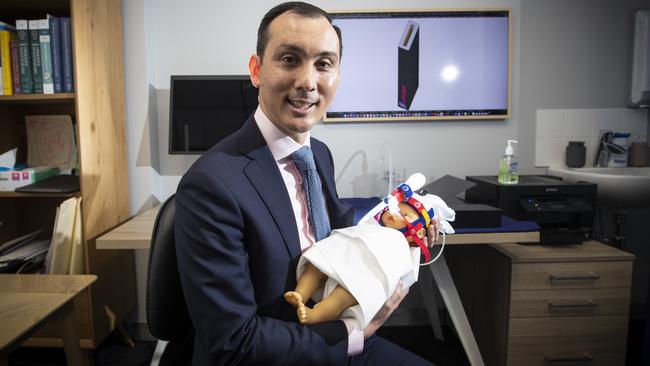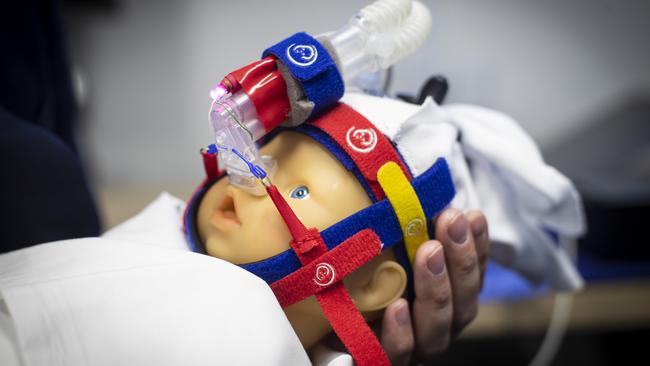Tasmanian team competes for $3 million to fund lifesaving medical inventions
Two lifesaving Tasmanian medical inventions — a portable phone steriliser and a device to help sick babies breathe — could receive $3 million of international funding. Read more about what they do.
Tasmania
Don't miss out on the headlines from Tasmania. Followed categories will be added to My News.
The “CPAP Buddy” and “SteriGadget” could become common items in hospitals around the world as Tasmanian inventors go in the running to receive $3 million of international funding.
The Royal Hobart Hospital collaborated with University of Tasmania engineering and business personnel to create the two lifesaving products for consideration in MedTech Acuator’s international Accelerator program.
The team produced the CPAP Buddy as a pressure sensing device fitted inside a Continuous Positive Airway Pressure machine mask, used in neonatal wards to assist babies needing help breathing.

The device would accurately and consistently sense if the mask was too tight, which could cause potential facial wounds and infections, or too loose, which could lead to brain damage or death.
RHH Neonatal Paediatric Critical Care Lab professor Peter Daragville said his CPAP Buddy invention would make an “enormous” difference to the world if it was chosen for the Accelerator program.
He said the project offered a “fantastic” opportunity to work in a collaborative environment. “We’ve got some wonderful young minds that are being applied to these problems,” he said. “It’s wonderful to see these people come together with their different backgrounds to make the beginnings of a device that we hope will be a success.”
The team’s second invention, the SteriGadget, would act as a lightweight, portable pouch to sterilise mobile phones and kill serious viruses, including the coronavirus, within minutes.
Health care staff would wear the pouch to avoid cross-contaminating and transmitting life-threatening diseases to patients.

RHH Plastic and Reconstructive Surgeon Dr Cameron Keating said the team of engineering and business students, scientists and clinicians began brainstorming inventions by identifying obvious clinical problems in the hospital environment.
“What they observed is that doctors and nurses are very good at hand hygiene, but consistently they would need to use their phones,” he said. “That would be the point of failure for their hand hygiene process.”
He said both inventions addressed worldwide unsolved problems, and he hoped state and federal governments would provide greater funding to promote talented Tasmanians at the forefront of medical technology breakthroughs.
The finalists, from Australia, India and Singapore, competing in the prestigious Melbourne incubator program, will find out if they are successful on May 15.
The winning teams will gain 15 months of international industry mentorship and $3 million in funding to create approved products to release onto the market for hospitals around the world.


